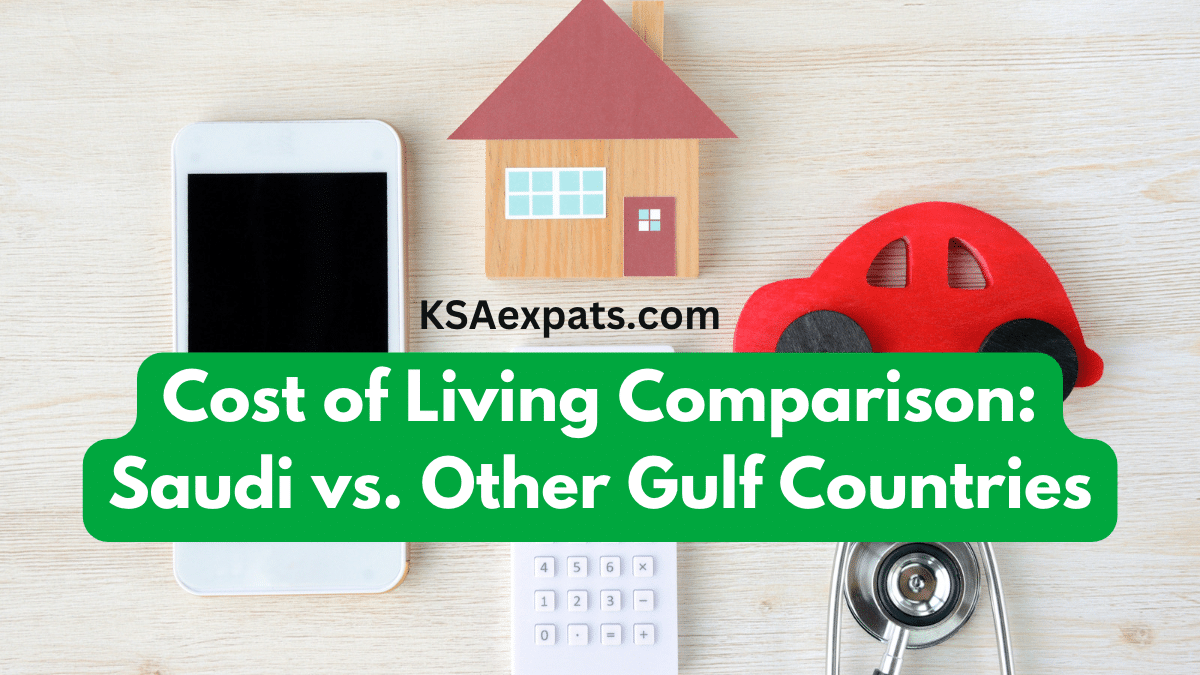Comparison of the Cost of Living in Saudi Arabia and Other Gulf Countries
The gulf region is a popular destination for expatriates due to well-paid job opportunities, tax-free income, and the chance to explore a unique cultural experience. However, the cost of living varies significantly across the region. In this blog article, we will delve into the cost of living for expats in Saudi Arabia, comparing it with other Gulf countries. We aim to provide an easy-to-understand guide for those considering a move to the region or looking to compare their current living expenses.
Saudi Arabia, known for its oil-rich economy, has been a popular destination for expats for decades. With a population of over 36 million, it is the largest country in the Gulf region, both in terms of land area and population. Major cities include the capital, Riyadh, and the economic hub, Jeddah. The government has recently focused on diversifying the economy, which has resulted in more job opportunities for expats in various sectors.
Housing Costs
Housing is often the most significant expense for expats, and Saudi Arabia offers a range of options, from affordable flats to luxurious villas. On average, the monthly rent for a one-bedroom apartment in a city center costs around SAR 3000 ($800), while a three-bedroom apartment can cost between SAR 2,250 to SAR 5,000 ($600 to $1,350). In comparison, other Gulf countries like the United Arab Emirates (UAE) and Qatar tend to have higher housing costs, especially in cities like Dubai and Doha, where the average rent for a one-bedroom city center apartment can be upwards of $1,800.
Utilities
Utility costs in Saudi Arabia are generally lower than in other Gulf countries, as the government subsidizes water and electricity. A typical monthly bill for a two-bedroom apartment is around $90. However, with the ongoing economic reforms, these subsidies are being gradually reduced, which may impact future costs.
Internet costs in Saudi Arabia are relatively affordable, with a 100 Mbps fixed line unlimited internet plan costing around SAR 290 ($77) per month. This offers expats a reliable connection without breaking the bank.
Transportation
Transportation costs in Saudi Arabia are relatively low, thanks to the availability of cheap petrol. A liter of petrol costs approximately SAR 2.18 $0.58, which is lower than in the UAE, where it costs about $0.82. Public transportation is still developing in Saudi Arabia, but taxis and ride-hailing services like Uber are widely available and affordable.
Food and Dining Out
Grocery shopping in Saudi Arabia is reasonably priced, with local produce and imported goods widely available. On average, a monthly grocery bill for a family of four can range from SAR 1,500 to SAR 2,250 ($400 to $600). Dining out is also affordable, with a wide variety of international and local cuisines to choose from. A three-course meal for two in a mid-range restaurant will typically set you back around SAR 100 to SAR 200 ($25 to $50).
Education
International schools are popular among expats in Saudi Arabia. Tuition fees can vary significantly, ranging approximately SAR 22,500 ($6,000) each year, depending on the school and the curriculum. In comparison, the UAE and Qatar have a wider selection of international schools, but tuition fees tend to be higher, often exceeding $11,000 every year.
Healthcare
Saudi Arabia offers a mix of public and private healthcare facilities. While public healthcare is generally free for Saudi citizens, expats may need to pay for some services. Many expats opt for private healthcare, which provides a higher standard of care but comes at a premium. Health insurance is essential for expats, and it is typically provided by employers as part of the employment package.
Conclusion
The cost of living for expats in Saudi Arabia is mostly lower compared to other Gulf countries, particularly in terms of housing, utilities, and transportation. However, it is essential to consider individual needs and preferences when deciding on a move to the region, as factors such as education and healthcare costs can vary significantly. Furthermore, the cultural differences and lifestyle adjustments may also play a role in the overall experience of living and working in the Gulf.
It is also worth noting that the cost of living in each country can differ depending on the specific city or region. For instance, living in the capital cities of Riyadh or Abu Dhabi may be more expensive than residing in smaller cities or towns within the same country.
More from KSAexpats.com:
